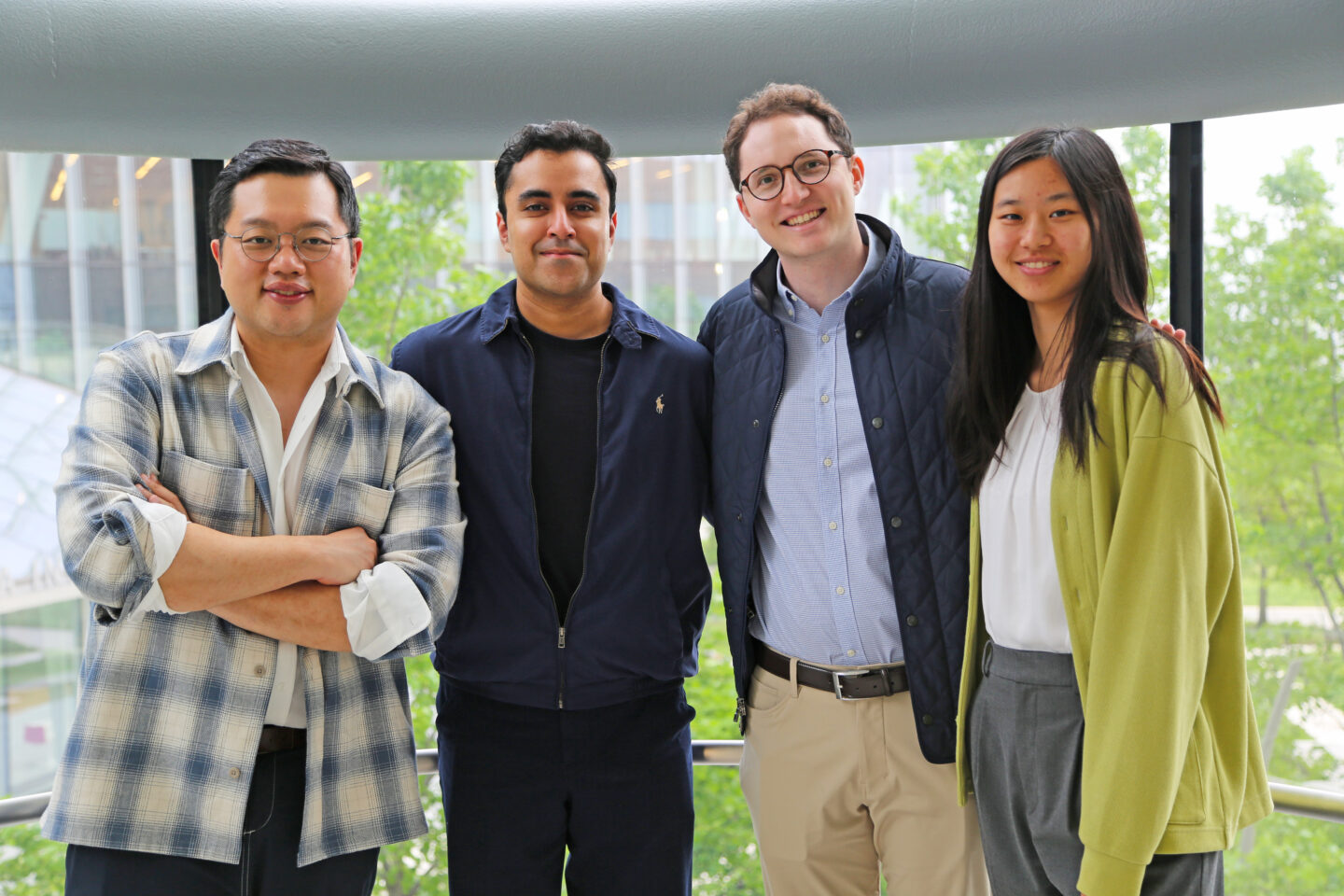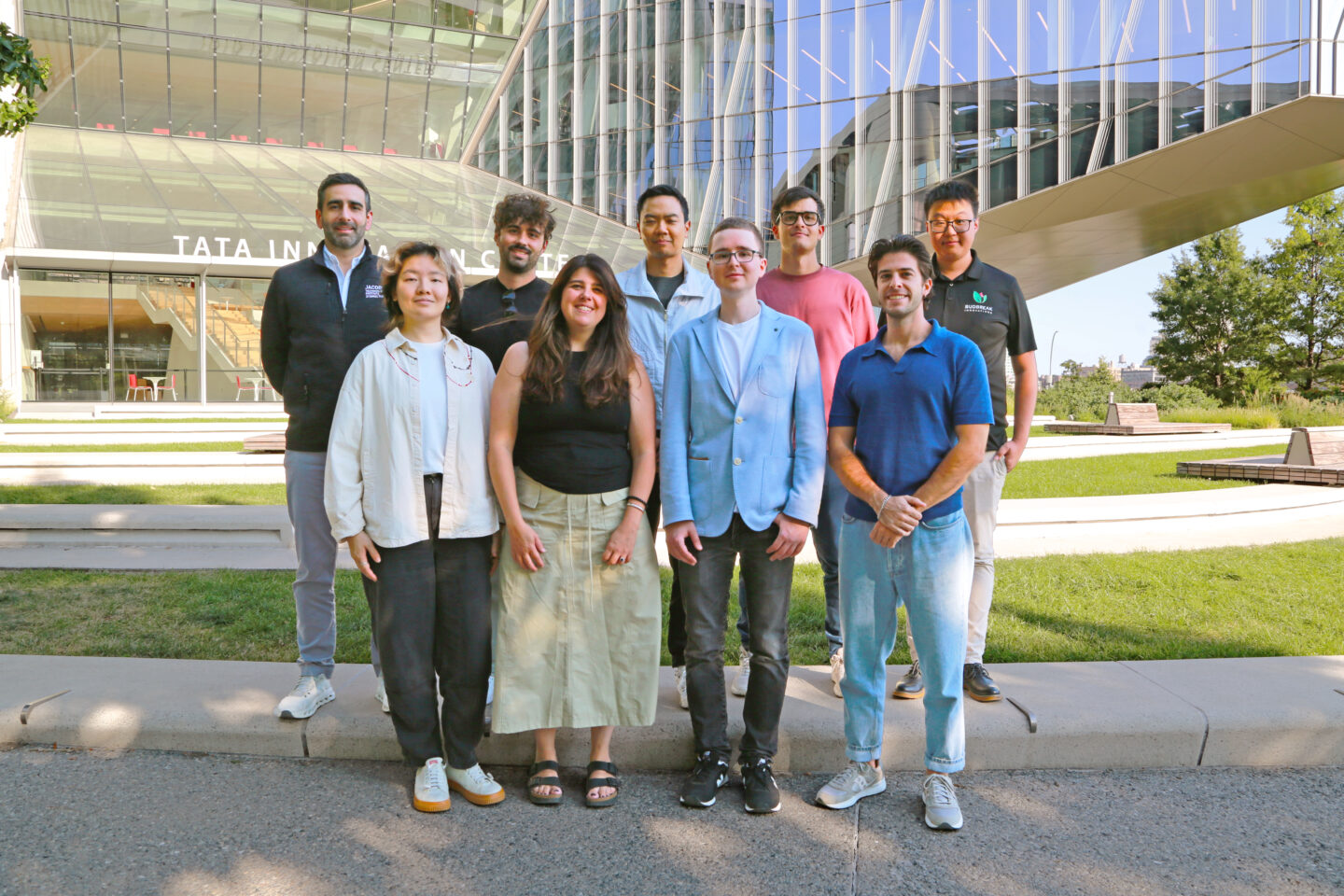
By Sarah Marquart
As tariffs shift and trade regulations grow more complex, a team of Cornell Tech students is developing a smarter solution to address modern trade compliance challenges. Their company, SAIL, is steering into uncharted waters with purpose — and a deep belief that solving the right problem can unlock a new wave of innovation.
SAIL is one of four winners at Cornell Tech’s annual Startup Awards competition on May 16. The students received a $100,000 investment, alongside mentorship and office space, from Cornell Tech.
The company’s founders are Cornell Tech graduates Chansam Kim, MBA ’25; Olivia Mei, Computer Science ’25; William J. Reid, Health Tech ’25; Salik Tehami, MBA ’25; and Ali Raza, MBA at NYU Stern.
Together, the team set out to build a solution that could streamline a critical piece of the trade compliance process: classifying goods under the Harmonized Tariff Schedule (HTS) — the global coding system that determines the duty rates applied to imported goods — and tracking duty exposure and regulatory changes in real time.
Reid’s background creating FDA-regulated machine learning tools shaped the product ethos. “We approached SAIL the same way I approached FDA-regulated machine learning: treat transparency and reliability as first-class requirements,” he said.
Cornell Tech’s Studio curriculum, a critical component of the master’s degree program, gave the team a proving ground. Over two semesters, the team leveraged its access to compliance professionals, interviewing more than 50 experts. This deep immersion helped them solidify that HTS classification as the right first problem to tackle, both in terms of urgency and scope.
“We started by listening,” said Reid. “Those interviews directly informed our decision.”
As the prototype took shape, Mei contributed her knowledge of full-stack software development. “It’s been a great opportunity to apply my skills to an important problem,” she said. “Despite a steep learning curve, collaborating with teammates who bring such diverse backgrounds and strengths has made it rewarding.”
Many of SAIL’s target users have decades of manual practice and limited exposure to AI. For that reason, SAIL positions itself as a co-pilot, not a replacement.
“We believe AI should collaborate with humans,” Kim says, capturing the startup’s ethos. With that in mind, the system explains its reasoning, cites legal rulings, and allows human reviewers to validate each output before it’s submitted.
Winning the Startup Award marked a major milestone for the team, both symbolically and strategically. “It was a great achievement,” says Kim. It gave SAIL what he calls “some certainty” — proof that the venture is much more than a class project.
The $100,000 prize will help fund in-person customer meetings, system improvements, and further development of SAIL’s AI models. It also catalyzed the team’s move into physical office space at Cornell Tech’s Roosevelt Island campus.
“It’s go time,” said Raza. “We’re soaking it in, but also recognizing that things are accelerating.”
Looking ahead, the team is focused on converting several current pilot customers into long-term contracts. Fundraising is planned for early next year, but the founders say inbound investor interest is already picking up.
“Our vision is to build the AI-native supply chain operating system for heavy industry,” says Tehami. “Most supply chain software was built for consumer goods. Heavy industry has different needs: project-based logistics, specialized equipment, and complex regulations. We’re building specifically for that reality.”
Sarah Marquart is a freelance writer for Cornell Tech.





